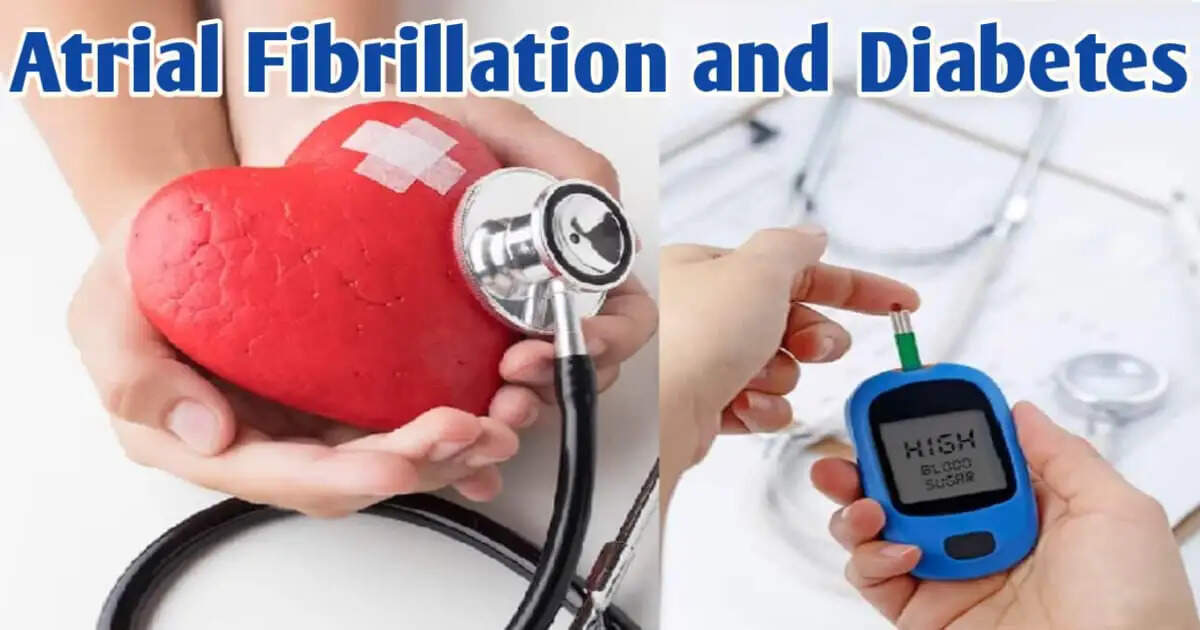How Diabetes Increases the Risk of Atrial Fibrillation (AFib)

Link Between Diabetes and Atrial Fibrillation: Atrial fibrillation can be called a condition of irregular heartbeat in simple words. Let us tell you that Atrial Fibrillation is a type of cardiac arrhythmia, i.e., a condition related to abnormal heart rate, in which the upper part of the heart (atrium) beats irregularly and at a fast speed. This can disrupt the flow of blood.
Let us tell you that nowadays along with heart related problems, the risk of chronic diseases like diabetes is also increasing. In such a situation, let us know whether there is any connection between atrial fibrillation and diabetes or not.
Is there a link between atrial fibrillation and diabetes?
Sometimes, two very different-looking or feeling diseases can also be very deeply connected. One of these diseases is atrial fibrillation (AFib), and the other is diabetes. Have you ever thought that these two different-looking problems can also be connected? Let us tell you that diabetes is often seen as a metabolic disease and AFib as a heart rhythm abnormality. The coming together of these two can cause serious problems to a person, like stroke, heart failure, and systemic embolism.
Atrial fibrillation disrupts the synchronized contraction of the upper chambers of the heart, increasing the chances of irregular blood flow and clot formation. Meanwhile, diabetes can promote inflammation, endothelial dysfunction, and arterial stiffness. Many studies suggest that insulin resistance plays an important role in the onset of AFib, in which fluctuating glucose levels trigger oxidative stress and the electrical stability of the heart can be disrupted. In such a situation, the risk of atrial fibrillation may increase.
How to prevent?
Additionally, diabetes-induced fibrosis within the heart atria predisposes individuals to frequent fibrillation. To avoid this condition, strict glycemic control, vigilant cardiac monitoring, and lifestyle changes should be done. Given the increased thromboembolic risk in diabetes and AFib patients, anticoagulation therapy may be needed.
